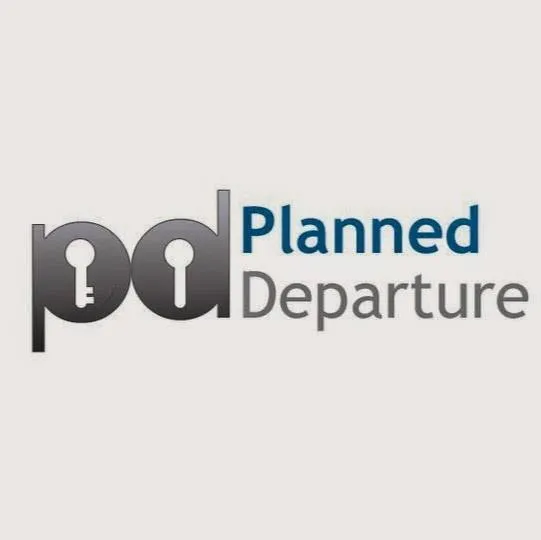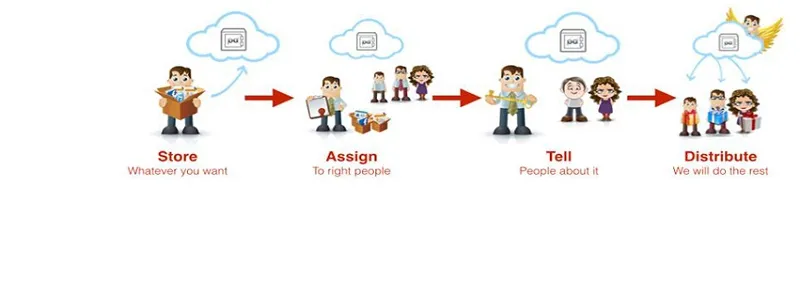'Once I am gone, why would I care about my Facebook account?' How Planned Departure is dealing with the question of death in digital times
“Our vision is to empower people by giving them control of their digital life and digital legacy,” says Anand Ramdeo of his startup Planned Departure, “Based on our research and personal experience, we know that how important it would be for people to get access to the right information at the right time.”

Husband wife duo, and software professionals, Anand and Komal Ramdeo had always nurtured entrepreneurial mind sets but were unsure of taking the leap from their lucrative careers to the uncertainty of starting up because they didn’t think they had an idea they could bank on. They moved from Bangalore to London where they started their own consulting company and helped organizations such as BBC, Channel4, Camelot, Man Investments, Tesco, etc. But the itch to create long term and meaningful impact remained, though they didn’t know how to act on it.
All that changed in 2010 when a personal tragedy lead to some startling epiphanies. Komal lost her father in 2010. It was the first time the couple dealt with death and its ravaging consequences up close. Grieving and mourning aside, this forced the couple to deal with the staggering legal ramifications that dying brings about. On the genesis of the aptly christened Planned Departure, Anand explains, “That was the first time we dealt with losing a close loved one. We came back to London and started thinking about what would happen if something happens to us. We contacted our banks, mortgage providers and many other organizations. Every one of them told us that they will not be able to identify beneficiaries for us. Beneficiaries will have to contact them otherwise our assets will become unclaimed.

We started our research and found that the UK has in excess of 29 billion pounds worth of unclaimed assets. We also realized that in a digitized world, where all of our information is stored digitally, this problem is going to become bigger.
We came across many individuals who went through huge pain because of the lack of access to the digital world and decided to solve this problem.”
Planned Departure’s function is simple but profound. It gives an individual control over their legacy, every minute nitty-gritty of their existence, to ensure that their wishes are carried out even when that person is no longer around to be able to assert that control. “You can think of Planned Departure as a courier company which will deliver right information to the right people at the right time. We allow our users to store their digital assets (Such as scanned copies of their property papers, passport, certificates, usernames / password and so on) in our electronic vault and give them granular control over it,” says Anand.

The couple believe that our digital footprint will only get more valuable with time, that it will have greater emotional and fiscal value associated with it in the future. “During the course of our research, we found many cases -such as http://www.gopetition.com/petitions/accessing-jakes-digital-data.html -where friends and family of the deceased had to go through great pain to access information from their accounts. Also, the online world isn’t about only emotional aspects. Things like domain name, or curated page on Facebook or YourTube channels, assets like these can have huge emotional value associated with it. If friends, family or colleagues do not get timely information about these assets, they can be lost in the cyber-world,” says Anand earnestly.
There is naturally a lot of skepticism associated with an idea like this, but the duo are confident about the need for this venture. “Need for a product like ours is validated by the likes of Google, Facebook and Yahoo. All of them have come-up with a solution for their users. However, we strongly believe that solution has to be from the third party providers like us because our digital footprint goes much beyond the remit of Google, Facebook or Yahoo.

It is crucial for us to do this because we believe that like any other physical assets, users should have complete control over their digital assets. They should be able to specify who should get what and what they should do with it. It is not right for the organizations to lock down or block access completely,” asserts Anand.
Evolving their startup in an industry as niche as this requires some skillful hustling, mostly because there isn’t much precedent to get by. “For us it’s an awareness issue. We work closely with the law firms and charities. Over the past few months, we have managed to create interest and seeded this thought in the mind of these organizations. They (Law firms and charities) are already trusted by their clients and their advice would mean a lot for the people. It’s a niche proposition. During our conversation, we found that even law firms were clue less about digital legacies,” says Anand.
These are early days for Planned Departure and for the industry at large in which they are operating. Thus problems in scaling are irritatingly common. Yet it also expedites that the startup will develop alongside the industry and may even commandeer the lion’s share of it one day. The Ramdeos are content taking things slow. “These are early days for us and our first focus was on proving our hypothesis that B2B2C route is a viable route. We have proven our hypothesis by getting partners from all the sectors. We have also put together all the required tools in place to get ourselves ready for the scale. Now we are at a stage where in we can start building our sales force to get key relationship in place,” explains Anand. He predicts, “Players from this industry will work closely with the law industry as well as account providers such as Google.”
Anand and Komal bootstrapped this venture initially and raised their first external round in September last year. They raised 120K GBP on the crowdfunding platform Seedrs. “We achieved over 200% of our target in under three weeks on Seedrs,” relays Anand enthusiastically, revealing the intense need in the market for a product like this.
Anand says that the most important feel good factor about their idea, which is so important in the early days of any entrepreneur’s journey, is to see the need for a solution in this domain is validated by the likes of Google, Facebook and Yahoo.
Startups are made on the idea of positivity and hope, they are grounded in the impact they will create and the world they will change. To lure customers by discussing their death can be uncomfortable at best and morbid at worst. Anand is insistent that Planned Departure is no different from any other offbeat idea to take to the market. He says, “We found many people who instantly got it and found it very useful. We also found many people who didn’t see the need for protecting their digital legacies and ensuring that information is delivered to the right people.
Their initial reaction was, once I am gone, I am gone - why would I care about my Facebook account? However, these comments were often a reflection of lack of awareness about the importance of digital world. Often, when we started discussions, shared stories of people who have suffered because of the lack of access, they were able to see the need for a solution in this space,” he continues, “But yes, many people are not comfortable in talking about and thinking about death.
Way we look at it is Planned Departure is a life planning tool and end of life is an essential part of our planning!”
For Anand and Komal, the hardest part about making the transition from employee to entrepreneur has been the drastic change in lifestyle. Prior to starting Planned Departure, both of them were software consultants and were reasonably active in our professional circuits. Conferences, travels, tech talks, blogs, discussions on twitter and complete freedom over their schedule was a way of life and leaving that life behind has been the most difficult part.
He says, “Our life now is completely different from our old consultant days. We do not enjoy holidays and wait for weekends to get over quickly! We often resist the urge to participate in discussion on blogs and twitter because of the time constraints. We have no freedom over our schedule and client meetings take priorities over everything else. However, we do not think sacrifice is a right word. It wasn’t forced, we consciously decided to go for it.”
The upside has been the learning. Anand radiates excitement while holding forth on the wonders of learning in an entrepreneur’s journey. “In terms of learning, it’s huge. Over the past few months, we have converted our pet project from a website to a business. We have learnt (Still learning :-)) and assembled all the pieces from marketing automation to customer support. We have learnt loads!”
“We have also learnt to live with the anxiety and uncertainties, which are constant companions of an entrepreneur’s life,” he shares.
And that’s not even the best part. He says, “Opportunity to work on things we are truly passionate about is the best part of becoming an entrepreneur. It feels good to be able to answer `yes` to a simple question - Are you having fun?”
Anand and Komal are cautious, but very ambitious, about the future of Planned Departure. They want to make the concept of digital legacy an integral part of an individual’s planning process. “Prospects and signs are very positive. We are confident and working hard to make that happen,” he says.
Anand’s parting shot to YourStory is not merely an advice, but a heartfelt urging. “Don’t wait! It might be easier to start than you think. Think about the worst case scenario and see what you would lose! One year’s saving? Career break for one year? Would it be the end of the world? Would you be able to find a job again if needed?
Don’t think of opportunity cost as what would you earn and where would you reach in your career in one year. Life is an opportunity and not doing things you truly wants to do is a bigger opportunity loss in my opinion. You will probably work crazy hours, have lots of uncertainties and anxiety, but hey, it would be an opportunity to say yes to a simple question - Are you having fun?” he signs off.







